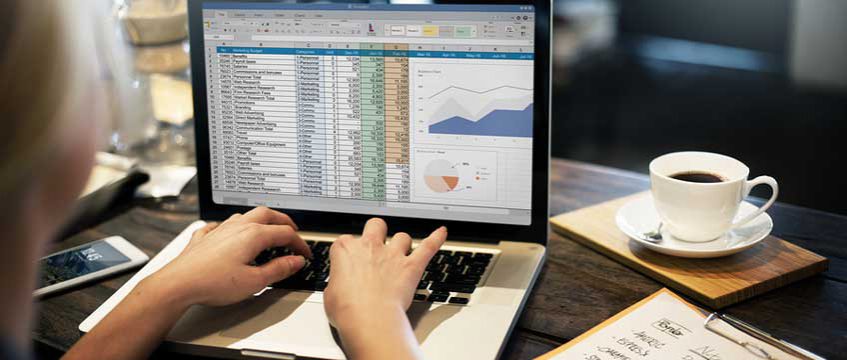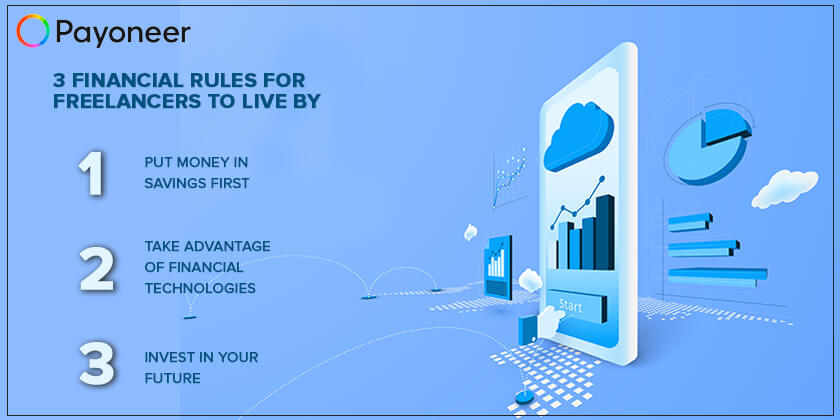
3 Financial Rules for Freelancers to Live By
Freelancing has plenty of perks. You can make your own schedule, choose the projects you want to take on, and get in line for the latest iPhone while everyone else is still on the clock.
However, freelancers exchange financial security for those freedoms. If you’re not careful with a buck, you can easily slip into financial distress.


If you want to succeed as a freelancer, put into action these helpful financial rules.
1. Put Money in Savings First
Call it an emergency fund, a rainy-day fund, or a savings account, but whatever you call it, make sure it exists. As much as you might want that new iPhone, wait until you have a financial cushion to protect you from ebbs in business.
Vanguard recommends an emergency fund that contains at least three to six months of living expenses. In other words, if you suddenly have no work, you can live off of your savings for half a year without feeling panicked about covering rent and food.
An emergency fund can cover other unexpected expenses, too, such as a medical emergency or a high utility bill. Most importantly, it gives you peace of mind. If you’re not constantly worried about money, you can focus on honing your skills and building your freelance roster.
2. Take Advantage of Financial Technologies
As a freelancer, you probably spend significant time with technology. The Freelancers Union suggests that freelancers should put that acumen to good use with free or paid financial apps. These programs allow you to generate or scan receipts, prepare invoices, track your spending, allocate profits to taxes, and more.
If you use technology to automate some of your financial obligations and to keep track of your finances, you’ll have more time to spend on work that generates revenue. Keeping your paperwork and financial documents in digital form protects your records and holds you accountable. If you’re ever audited or required to produce documentation for the government, it’ll be easy to locate and produce.
3. Invest in Your Future
An emergency fund isn’t the only practical expense you should set up. For instance, what will you do when you get older and want to retire? If you don’t have a retirement account, you’ll find it difficult to lead a life of leisure. Similarly, you don’t want to tempt fate by dropping your health insurance coverage. Without that protection, a serious injury or illness could severely deplete your finances, especially if your medical issue prevents you from taking on new work. Compare insurance plans and find one that suits your lifestyle and retirement goals. It can be hard to think about putting even more money aside when cash flow is unpredictable, but this is a predicament that will come back to haunt you later in life (or–heaven forbid–in case of a disability) if you don’t plan for it.




